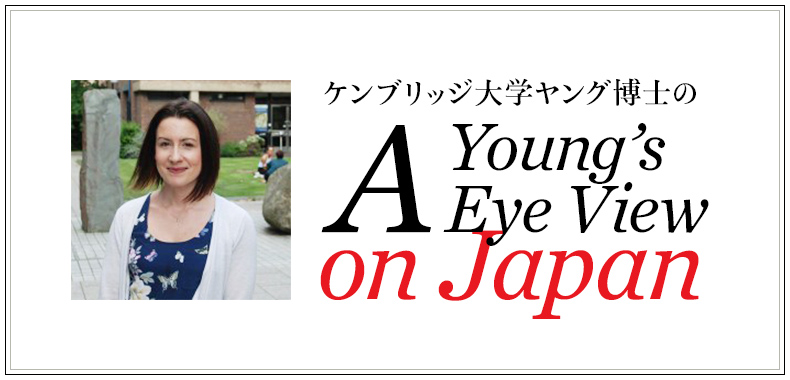Sparks
“Without enthusiasm, the best powers of our mind sleep. It's a tinder in us that wants to spark.” So wrote the 19th century German philosopher and literary critic, Johann Gottfried Herder (1744-1803). Herder’s words resonated this past week when I observed the work of future scholars of Japanese Studies in the UK. In Cambridge, all final-year students produce a dissertation whose primary criterion is to make an original contribution to existing research. It was exciting to see our final-year students speak about a wide range of projects including premodern shunga, Japan’s space programme, and disaster literature.
enthusiasm 熱中、熱狂 / tinder (火打ち石の火を受ける) 火口、着火材 / spark 火花を散らす / philosopher 哲学者 / literary critic 文芸批評家 / Johann Gottfried Herder ヨハン・ゴットフリート・ヘルダー / resonate (心の中に) 響き渡る / observe ~を観察する、注視する / scholar 学者 / dissertation 論文、学位論文 / criterion 基準、判定基準 / make a contribution to ~に貢献する、寄与する / existing research 既存の研究、既存研究 / a wide range of 広範な、幅広い / premodern 近代以前の / space programme 宇宙計画 / disaster 災害、天災
The term ‘disaster literature’ (shinsai bungaku) has become popular in Japanese literary scholarship to describe the wealth of creativity from writers, filmmakers and artists in Japan since 11th March 2011. The writer Furukawa Hideo, who was born in Fukushima yet heard the news of the earthquake in Kyoto, produced a frenetic, stream-of-consciousness account of his return home. The poet Wagō Ryōichi remained in the Tōhoku region and used Twitter to disseminate short poems that described scenes of the earthquake’s aftermath. Other writers, like Tawada Yōko and Kimura Yūsuke, have created more narrative yet politically interested works of fiction.
scholarship 研究方法、学風 / describe ~を述べる、表現する / wealth 豊富さ、豊かさ / Furukawa Hideo 古川日出男 (小説家、劇作家) / yet それにもかかわらず、それなのに / earthquake 地震 / frenetic 大騒ぎの、狂乱状態の / stream-of-consciousness 意識の流れの / account of ~に関する報告、記述 / return home 帰宅、帰郷 / poet 詩人 / Wagō Ryōichi 和合亮一 / remain in ~にとどまる、残る / disseminate ~を拡散する、広める / aftermath 直後の時期 / Tawada Yōko 多和田葉子 (ドイツ在住の小説家、詩人) / Kimura Yūsuke 木村友祐 (小説家) / narrative 物語の、物語的な
It is fascinating to observe this creativity based around the idea and experiences of ‘disaster’, especially since traumatic events are thought to be difficult or even impossible to represent. Yet when I read these works of fiction with my students in Cambridge, I am impressed by their desire to understand those experiences that might initially seem distant or alien from their own. This is the power of literature, to bridge the gaps between people and cultures and to see the world through different eyes. As we enter the Easter vacation, I hope that my students will retain their enthusiasm to write insightful and courageous dissertations that foster deeper relations between England and Japan.
fascinating 魅力的な、興味をそそる / (be) based around ~を基調としている、~に基づいている / traumatic 心的外傷の、トラウマ的な / represent ~を表現する / be impressed by ~に感心する、感銘を受ける / desire 願望、欲望 / initially 初めは、当初は / seem distant from ~から遠く離れているように見える / seem alien from ~とはかけ離れているように見える、異質に見える / bridge the gap between ~の間の隔たりを埋める、~の間に橋渡しをする / Easter 復活祭、イースター (その年の春分の次の満月から数えて最初の日曜日とされており、2019年は4月21日) / retain ~を持ち続ける / insightful 洞察に満ちた / courageous 勇敢な / foster ~を育成する、育てる



